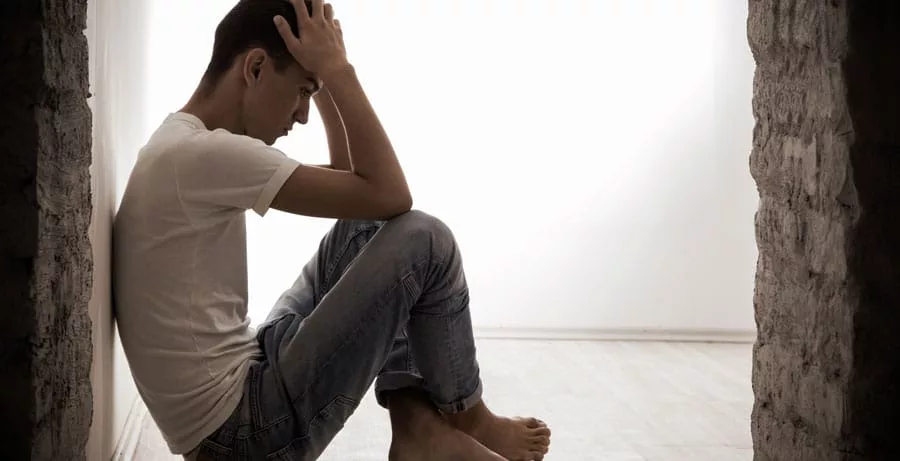Chronic Relapsing Disease: Finding Treatment for Life-long Recovery
Addiction is a chronic disease. This is because addiction causes changes to the brain. As a result, people that suffer from addiction have a tendency to fall back into it over and over again even after multiple stints in rehab.
Thus, people that suffer from addiction must be proactive about their recovery every day for the rest of their lives to avoid relapsing. For some people that suffer from addiction, avoiding relapsing is particularly difficult, especially over a long period of time. That’s why so many people suffer from chronic relapsing disease.
What is Chronic Relapsing Disease?
Chronic relapsing disease is a disorder that occurs when a person that suffers from drug or alcohol addiction continuously falls back into addiction after attending treatment. Chronic relapsing disease usually occurs after a 30-90 day stint in addiction treatment. This is because addiction is a lifelong disease and thus requires more time than just a couple of months to get under control.

The longer an addiction treatment program, the more likely that it will lead to success and you will not relapse after attending it. Think about it. Medical professionals say that it takes several months of consistently doing something to change or create the smallest new habit. What makes you think that you can overcome a disease that literally causes changes to your brain’s chemistry like addiction does in only 30 to 90 days? It just doesn’t make any sense. That is why long-term addiction treatment is the most effective form.
After a person attends long-term addiction treatment, the best way to sustain sobriety is to utilize aftercare treatment services that will help that person better transition into society. While attending life-long treatment and using aftercare services will minimize the chances of you relapsing, there is no guarantee.
This is especially true if you’re a chronic relapser. Thus, the best way to manage chronic relapsing disease as a chronic relapser is to be proactive about your recovery at all times.

Causes of Chronic Relapsing Disease
Numerous things can contribute to a person developing chronic relapsing disease. Abusing a large number of substances for a long period of time prior to attending treatment can be one reason why a person struggles with chronic relapsing.
- Not receiving addiction treatment after attending detox
- Attending addiction treatment that isn’t individually specialized to your needs
- Having an unstable home environment
- Not simultaneously treating any co-occurring disorders that you may have
- Not receiving aftercare treatment
- Going through a major life transition
- Other forms of addictions that you may be suffering from, like gambling addiction or sex addiction, transferring over into your substance addiction
- Not being honest with addiction treatment specialists and therapists when in rehab
- Living in a harmful environment
- Family conflict
- Being triggered by an object or environment that you associate with drug use
- Stress
- Financial instability
- Hanging out with the same people or in the same environments as when you were using drugs
- Lack of accountability
- Not changing the way you think about drugs and alcohol
- Post-acute withdrawal syndrome
- Not following relapse prevention methods
Stages of Chronic Relapse
Emotional relapse is the first stage of relapsing. Emotional relapse occurs when people that are in recovery from addiction behave and emotionally react in ways that set them up for relapsing. People that emotionally relapse, do so unconsciously without actively thinking about using drugs. As a result, many people in the emotional relapse stage are in denial about it.
Signs of emotional relapse include:
- Bottling up emotions
- Isolating oneself
- Not attending support group meetings
- Not participating in support group meetings
- Not focusing on fixing your addiction issues
- Poor eating and sleeping habits
- Poor self-care
Mental relapse is the second stage of relapsing. During mental relapse, people in recovery start to want to use substances. Although people in mental relapse start to actively think and desire the use of drugs again, there is still a part of them that is resisting. The deeper a person goes into mental relapse, the more that person wants to use substances.
Signs of mental relapse include:
- Craving for drugs and alcohol
- Thinking about people, places, and things associated with past use
- Glamorizing past times of drug use
- Minimizing the negative effects of past drug use
- Bargaining
- Lying
- Thinking of ways to control drug use
- Looking for opportunities to relapse
- Planning for a relapse
Physical relapse is the third stage of relapsing. During a physical relapse, people in recovery start to use substances again. Most physical relapses occur during a time when those in recovery get an opportunity and don’t think that they will get caught.
Signs and Symptoms of Chronic Relapsing Disease
- Hopelessness
- Coming across as a professional at treatment
- Only attending treatment to appease family and friends
- Not completing an entire program
- Refusing to face underlying issues for addiction
- Feeling exhausted and down due to many relapses
- Being dishonest
- Desiring to use substances
- Inability to apply knowledge about addiction, recovery, and sobriety
- Associating sobriety with struggle
- Going through emotional issues
- Poor sleeping and eating habits
- Experiencing cravings for substances
- Using substances again
- Romanticizing drug use
- Believing that you can use substances again without becoming addicted
- Increased isolation
- Not attending support groups
- Not pursuing interests and hobbies picked up during treatment
- Doubting the effectiveness of recovery

The Cycle of Addiction and Chronic Relapse
There is a cycle that most people that suffer from addiction go through prior to relapsing. This cycle of addiction and chronic relapse contains six stages. The stages of addiction and chronic relapse include:
1. Drug use and abuse
2. Tolerance and dependence
3. Addiction
4. Contemplating treatment
5. Completing addiction treatment
6. Relapse
Relapse Rate By Substance
People have a tendency to relapse from addiction to certain substances more than others. For example, 40%- 60% of people that suffer from alcoholism will experience alcoholic relapse within their first year of recovery.
61% of people that suffer from methamphetamine addiction will experience a relapse within their first year of recovery. 65%- 70% of people that suffer from cocaine addiction will experience a relapse within the first 90 days of their recovery, and 90% of people that suffer from heroin addiction will experience a relapse within the first year of their recovery.
Thus, no one should feel shame about relapsing from addiction. As long as you receive treatment and take the proper measures to avoid relapsing again, you’ve done what you can do.

How Families Can Assist in the Prevention of Chronic Relapsing Disease
Oftentimes family members can’t understand why their loved ones that suffer from addiction can’t just get it together and stop relapsing. It also doesn’t help that many family members of people that suffer from addiction are frustrated with being taken advantage of and lied to by their addicted loved ones.
Due to all of these frustrations, many family members excessively guilt trip their addicted loved ones, or even worse, enable the addictions of their loved ones. Unfortunately, both of these actions will likely only trigger a relapse.
To better understand chronic relapsing disease, family members of people that suffer from the disorder should attend family therapy. To assists in the prevention of chronic relapsing disease, family members of people that are recovering from addiction should hold their loved ones accountable for their actions while still lovingly supporting and encouraging them when they are down.
Chronic Relapsing Disease Treatment
To treat chronic relapsing disease, you should receive professional detox, long-term addiction treatment that lasts longer than 90 days, and behavioral therapy. Professional detox will provide you with the medical assistance and guidance that you’ll need to safely rid your body of substances. During medical detox, you can also make use of prescription medications to help you manage your withdrawal symptoms.
After attending detox, it’s imperative to receive long-term addiction treatment because chronic relapsing disease will need extensive, chronic treatment to overcome. It’s also important to incorporate behavioral therapy during and after your long-term treatment for chronic relapsing disease because it will help you make the behavioral and perspective changes that you need to make to maintain sobriety. Co-occurring treatment is also necessary for anyone that suffers from both an addiction and mental illness to change toxic behaviors.
You should also utilize aftercare services after you leave addiction treatment so that you can transition smoothly into the real-world after treatment. Taking any necessary medications, learning how to manage your triggers, continuing to attend addiction therapy and support groups, and creating a chronic relapse prevention plan will further help you treat and manage your chronic relapsing disease after you’re in recovery. To receive the best chronic relapsing disease treatment, one of the many chronic relapsing treatment centers.
Sana Lake Recovery Is One of the Top Chronic Relapse Treatment Centers
At Sana Lake Recovery, we understand the measures that a person needs to take to treat chronic relapsing disease. We also understand what people in recovery need to do to prevent chronic relapsing disease. That’s why we make sure that each of our patients attends detox and specialized addiction treatment.
We also make a conscious effort to offer various different kinds of long-term addiction treatment programs. We even make sure to offer our patients medication-assisted treatment, treatment for co-occurring disorders, and various forms of behavioral and family therapy. That way, all withdrawal symptoms, mental illness, family issues, or toxic behaviors get taken care of immediately.
With all of the measures that we here at Sana Lake Recovery take to treat and prevent chronic relapsing, we’re one of the top chronic relapse treatment centers. To learn more about Sana Lake Recovery and our treatment programs and services, contact us today.



